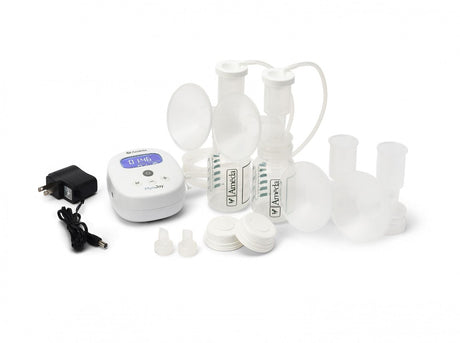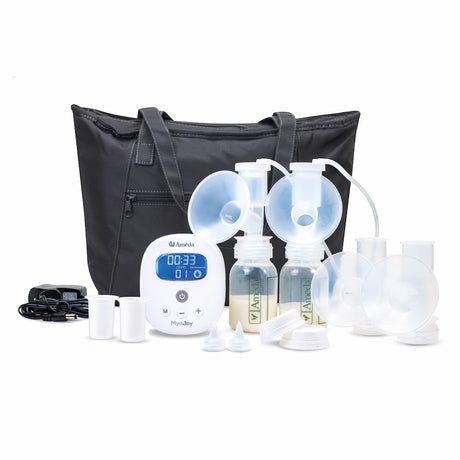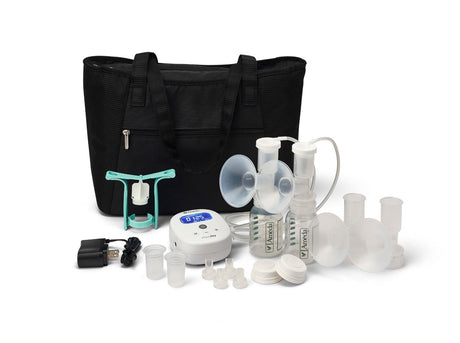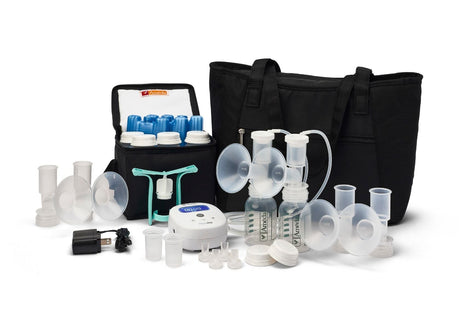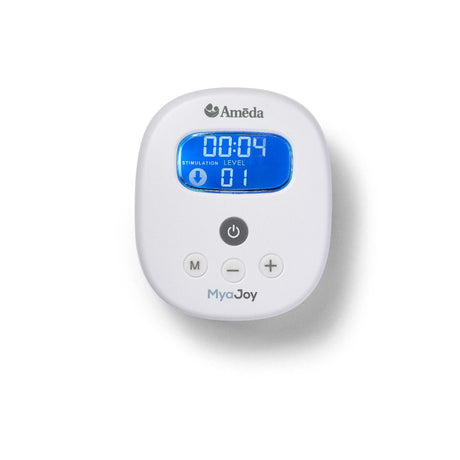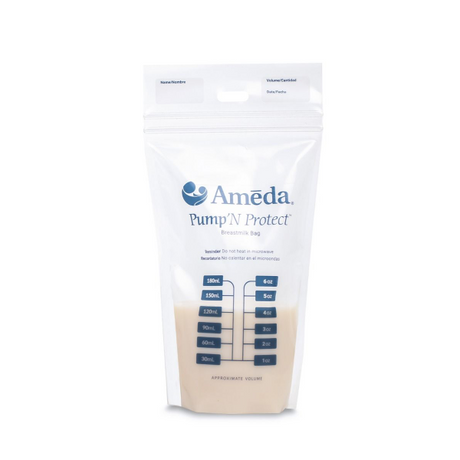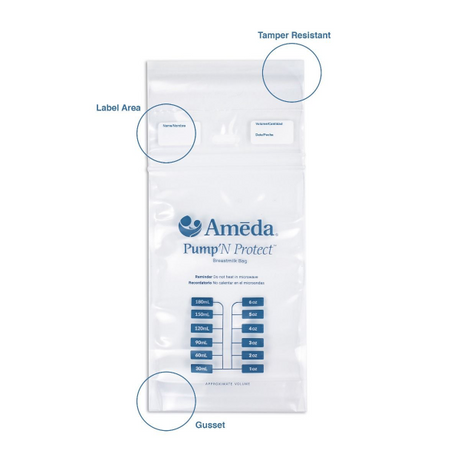Published:
You’re the sole person who breastfeeds your baby, but your relatives and friends may influence your thoughts about your decision to nurture your child this way. Comments from your inner circle – both positive and negative – may change the way that you feel about breast milk versus baby formula.
If you’re committed to breastfeeding your baby, you’ll have an easier time if you have the help and support of these people:
Your Partner
You and your partner make important life decisions together, so it’s only natural that his words and actions can influence your thoughts and opinions. When your goal is long-term breastfeeding success, it’s crucial to have your partner on your side.
Research has shown that when men make discouraging comments about breastfeeding or say that they’re unsure if they prefer breastfeeding to bottle-feeding for their own babies, their partners feel less confident in their ability to breastfeed. Self-confidence is important when you’re establishing your breastfeeding habits, especially if you’re having problems perfecting your form. Having your partner introduce feelings of doubt may make you question your decision to nourish your baby with breast milk.
Fortunately, there are many ways that your partner can show that he’s supportive while you’re breastfeeding, and saying encouraging things is just one option. Your partner can also demonstrate his commitment to breastfeeding by making the process easier for you. For example, he might decide to take care of different chores around the house so that you can spend ample time breastfeeding. Or he can get the baby from the other room when it’s time for you to breastfeed in the middle of the night. Even being present for feedings can show that he’s your breastfeeding ally.
Some dads feel left out when their partners breastfeed. They may worry that their inability to nurture their babies may create distance in their relationships with their little ones. They may think that they won’t have the opportunity to have a special connection with their babies if the moms do all of the feeding, but this simply isn’t true. There are many opportunities for dads to cuddle, soothe and interact with their babies that don’t involve feeding. If you suspect that your partner covets the time that you spend breastfeeding your baby, discuss your concerns with him, then identify an activity that he can do with your baby that will be their special bonding activity. Maybe he can be in charge of gently rocking your baby after meals. Perhaps they can curl up in his easy chair together without their shirts on for skin-to-skin contact. Maybe he can sing your baby a special lullaby at bedtime. This may make your partner feel more included and more supportive of your commitment to breastfeeding.
Your Mom
Do you value your mom’s opinion? Many women do. And research has shown that your mother’s attitude toward breastfeeding can influence your own thoughts about nurturing your baby. If your mother had a positive experience while breastfeeding you, she’ll probably be supportive of your decision to nurse your baby, and she’ll encourage you throughout the process. But if your mom bottle-fed you, she may see breastfeeding as a strange, unfamiliar process. If she’s very vocal, her words might even dissuade you.
For this reason, some experts suggest that it may be helpful to bring your mother along to healthcare appointments when breastfeeding will be discussed, so that she can learn about the mechanics, the big-picture benefits and the importance of her support. It can also help to sit your mom down for a heart-to-heart talk to let her know that you need her loyalty and encouragement rather than her criticisms while you’re learning how to breastfeed.
Your Baby’s Pediatrician
If you’re unsure about your breastfeeding technique or you’re concerned that your baby isn’t eating enough, consider seeking the advice of your baby’s pediatrician before hiring a lactation consultant. You’ll have a few well visits scheduled with the doctor during your baby’s first several weeks of life, but you can also make additional appointments to address any concerns.
At each office visit, the pediatrician will weigh your baby and track her progress to ensure that she’s gaining enough weight; proper weight gain shows that she’s getting enough breast milk. The doctor will also ask about the number of wet and dirty diapers that your baby produces daily, which is another indication of good nutrition.
Many pediatricians will ask to watch you breastfeed to ensure that your baby is latching on properly. If your pediatrician doesn’t offer to observe your technique, you can ask for his input. Don’t be shy about letting the doctor see what’s going on. This isn’t the moment be modest; your baby’s pediatrician is a trained medical professional who can offer practical suggestions to help you improve your baby’s latch. In some pediatricians’ offices, the breastfeeding specialist may be a nurse or on-staff lactation consultant rather than the doctor, but that’s fine, as long as someone in the office can listen to your concerns, answer your questions and correct your positioning as needed.
Pediatricians who are breastfeeding-friendly recommend exclusive breastfeeding for your baby’s first 6 months of life. They don’t distribute coupons or other materials advertising baby formula, which has been shown to discourage some moms from breastfeeding. Breastfeeding-friendly doctors also tend to be knowledgeable about breast pumps, since they encourage working moms to continue breastfeeding when they return to their jobs. If you have questions or concerns about pumping, storing breast milk or transitioning an exclusively breastfed baby to bottles when your maternity leave ends, your pediatrician should be able to offer advice.
Your Best Friend
You tell your closest friend everything, so it’s natural that the two of you will talk about your decision to breastfeed your baby and any troubles that you encounter.
Like most women, you probably put stock in your friends’ opinions. And research shows that you may be more likely to breastfeed, or continue breastfeeding, if your best friend nursed her children or has a positive attitude about breastfeeding. It may be comforting to follow in your friend’s footsteps, knowing that she can guide you if you have questions or concerns. Your friend’s advice can also be helpful if you’re going back to work: Research has shown that women are more likely to use their breast pumps for longer periods of time if their friends share their breast-pump knowledge with them.
But a best friend’s influence may have negative effects on your resolve if she bottle-fed her children or has negative opinions about breastfeeding. Research has found that some women are less likely to breastfeed their babies if their closest friends haven’t done it. And if they decide to try breastfeeding anyway, they’re more likely to quit within a few months.
It may be easier for some women to follow a friend’s lead than be a trailblazer, so consider making some new friends to have as peer support and role models if your best friend isn’t enthusiastic about breastfeeding. Seek out a group of local breastfeeding moms through La Leche League, Meetup, your local community center or through a recommendation from your pediatrician. Or reconnect with an old friend who’s also breastfeeding her baby. The camaraderie may prove invaluable.
DISCLAIMER:
Ameda strives to present you with accurate and useful breastfeeding information. This article may contain information and ideas that are not necessarily the views of Ameda. It does not constitute medical advice. If you have any questions please contact your healthcare professional.



